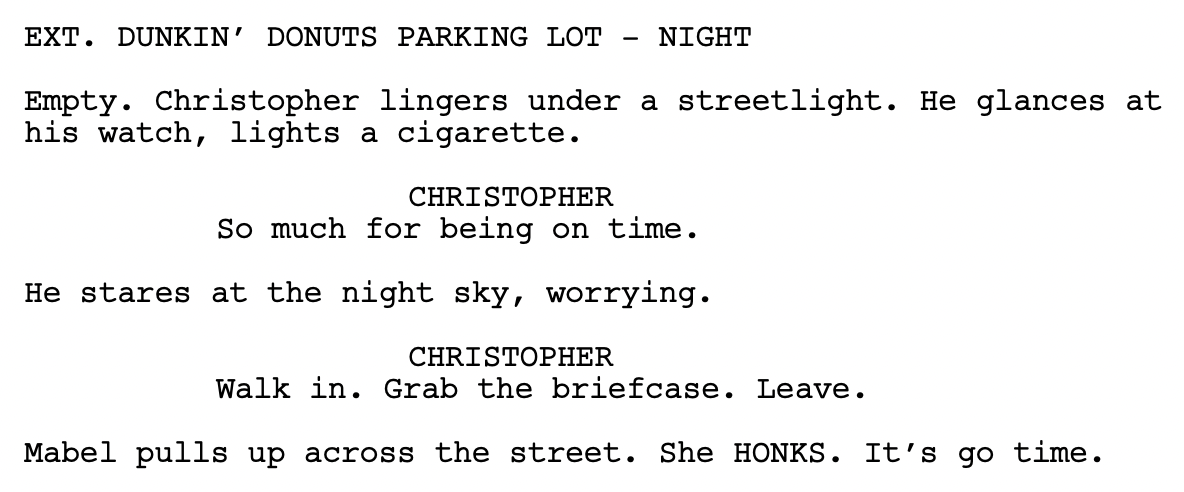Fix This - 2.9.25
Everything in a screenplay matters--including good writing! Which is why, unlike a lot of other screenwriting courses, Screenwriting Essentials devotes an entire lesson to constructing concise, vivid, and compelling sentences.
Take a look at the script excerpt below. How would you improve it?
The first mistake this excerpt makes is it repeats information from the scene heading in the first sentence of the scene. We already know it’s night and we’re in a parking lot from reading the slugline. Make your writing less repetitive by cutting these details from the action description.
Think we’re done with the first sentence? Here’s a nit-picky detail a lot of writers miss. You don’t need the adverb “completely” before “empty.” Empty already means completely empty. Some writers are against adverbs at all. We’re not. But we do suggest if you’re going to use an adverb, use one that adds something meaningful. Hauntingly empty, for example, would tell something interesting about the parking lot. Completely empty is just a longer way of saying empty. In this example, we cut it. “Empty” says enough.
What else would you change?
The next mistake is that this writer has put action in a parenthetical. Remember, parentheticals are used to convey emotion that isn’t clear from the dialogue (like if a character says a line sarcastically). Action belongs in the action description.
Moving along, there’s a problem with the line “runs through the plan in his head.” Why? Because it’s in the character’s head! If it’s in the character’s head, we can’t see it on screen. For all we know, he’s thinking about his dry cleaning. Instead of writing what he’s thinking about, give us the emotion he’s feeling. That gives the actor something to, well, act.
But, you might ask, what if it’s important to you that the audience does know exactly what Christopher is thinking about? If that’s the case, you need to make it obvious. And not just obvious to the person reading your script. Obvious to people watching your movie in a theater. That means it needs to be a scene showing us what’s going on in Christopher’s mind (you see this most often with flashbacks) or it needs to be in dialogue.
Here’s one option…
That’s better!
Before we move on, there’s another small detail you can change in the sentence about the night sky that a lot of people miss. Do you see it?
If you really want to be mindful about your sentences (and who doesn’t?), you could cut “up” from that line. Where else would he stare? Down? To his left?
If you feel compelled, give it a trim. One more change to go…
Last, but not least, don’t forget that sound effects should always be in all caps. Mabel doesn’t honk, she HONKS.
There you go! A few simple changes and you’re on your way to better writing.
For more insight on how to write polished and professional scenes, sign up for our self-paced screenwriting course, Screenwriting Essentials. We’ll teach you everything you need to know to write a top-notch script.








